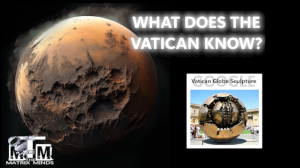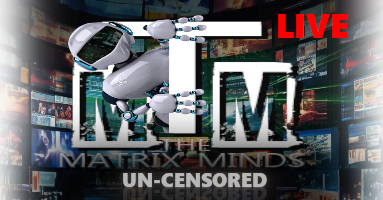 The origins of the human species have long been a subject of fascination, debate, and speculation. Scientists and scholars have tirelessly sought answers to the profound question of how we came to exist. However, one institution that has consistently remained silent on the matter is the Vatican, the spiritual and administrative center of the Roman Catholic Church. While the Vatican’s stance on evolution and creationism has been well-documented, rumors persist that the Vatican possesses knowledge regarding the true origins of humanity, shrouded in secrecy and mystery. In this article, we explore the speculations surrounding the Vatican’s awareness and delve into the possibilities it entails.
The origins of the human species have long been a subject of fascination, debate, and speculation. Scientists and scholars have tirelessly sought answers to the profound question of how we came to exist. However, one institution that has consistently remained silent on the matter is the Vatican, the spiritual and administrative center of the Roman Catholic Church. While the Vatican’s stance on evolution and creationism has been well-documented, rumors persist that the Vatican possesses knowledge regarding the true origins of humanity, shrouded in secrecy and mystery. In this article, we explore the speculations surrounding the Vatican’s awareness and delve into the possibilities it entails.
The Vatican and Evolution
The Roman Catholic Church, under Pope Pius XII’s leadership in 1950, issued a statement affirming that Catholicism and evolution were not in conflict. This acceptance of evolution as a scientific theory was reiterated by Pope Francis in 2014. The Church recognizes the compatibility of faith and science, seeing the process of evolution as a manifestation of God’s creative plan. While the Vatican has officially embraced the theory of evolution, it has remained tight-lipped regarding the deeper aspects of human origins.
Speculations and Conspiracy Theories
Conspiracy theories surrounding the Vatican and its knowledge of human origins abound. One theory suggests that the Vatican possesses hidden ancient texts or artifacts that provide insights into our true ancestry. According to this line of thinking, these records could reveal information contradicting mainstream scientific understanding, challenging the concept of human evolution.
Another theory posits that the Vatican is aware of extraterrestrial involvement in human origins. Advocates of this idea argue that the Vatican’s secrecy is rooted in a fear of undermining religious dogma and creating widespread panic. While no concrete evidence supports these claims, they persist as intriguing possibilities.
Ancient Knowledge and Secret Archives
The Vatican is renowned for its vast archival collections, including the Vatican Secret Archives. This vast repository holds an extensive collection of historical documents spanning centuries. Some theorize that within these archives, there might exist hidden knowledge or suppressed information about human origins. While the archives are primarily focused on religious matters, they are believed to contain a wealth of historical and scientific material. It is possible that these records hold clues or alternative perspectives on our origins.
The Role of Faith and Science
The Vatican’s reluctance to disclose any information it may possess on human origins could be due to the complex interplay between faith and science. The Church has traditionally occupied a position where it seeks to reconcile religious teachings with scientific discoveries. Publicly revealing information that challenges widely accepted scientific theories could undermine this delicate balance and potentially create tension between the Church and the scientific community.
Final Thoughts
The question of whether the Vatican holds secret knowledge about the true origins of the human species remains unanswered. While conspiracy theories and speculation abound, the Vatican’s official stance of embracing the theory of evolution suggests that it aligns itself with mainstream scientific consensus. Nevertheless, the Vatican’s historic repositories, such as the Vatican Secret Archives, continue to fuel curiosity and inspire imaginations.
As humanity continues to explore and uncover the mysteries of our origins, it is crucial to approach these inquiries with an open mind, embracing both the wonders of scientific discovery and the profound beliefs that shape our spiritual and religious lives. Only through dialogue, mutual respect, and a willingness to explore new ideas can we hope to uncover the truth about our origins, and perhaps shed light on the enigmatic role the Vatican may play in this ongoing quest.
The Vatican’s commitment to the compatibility of faith and science should not be overlooked. The Church recognizes that scientific advancements and discoveries offer valuable insights into the natural world and the intricate processes that govern it. Pope Francis himself has emphasized the importance of ecological stewardship and the need for dialogue between science and religion to address pressing global challenges.
It is important to note that the Vatican’s primary role is not to serve as an arbiter of scientific knowledge but rather to guide the faithful and provide moral and spiritual guidance. While the Vatican may possess historical documents and artifacts of great significance, it is unlikely that they hold a definitive answer to the question of human origins that would overturn established scientific consensus.
In the pursuit of understanding our origins, it is vital to respect the contributions of both science and religion. Science offers a rigorous methodology for investigating the natural world, while religion provides a framework for addressing existential questions and moral values. The compatibility between faith and science allows for a rich tapestry of exploration that can lead to a more comprehensive understanding of humanity’s place in the universe.
As our understanding of the natural world continues to evolve, it is essential to foster open dialogue and collaboration between scientists, theologians, and scholars from various disciplines. By bridging the gaps between these fields, we can explore the profound questions of human existence and origins with a sense of intellectual curiosity, respect, and humility.
In conclusion, while rumors persist about the Vatican’s knowledge of the true origins of the human species, concrete evidence remains elusive. The Vatican’s acknowledgment of the compatibility between faith and evolution, as well as its emphasis on dialogue between science and religion, suggests a willingness to engage with scientific discoveries and advancements. As humanity continues its quest for knowledge and understanding, it is crucial to approach this exploration with an open mind, appreciating the complex interplay between science, faith, and the mysteries that shape our existence.




Leave a Reply
Want to join the discussion?Feel free to contribute!